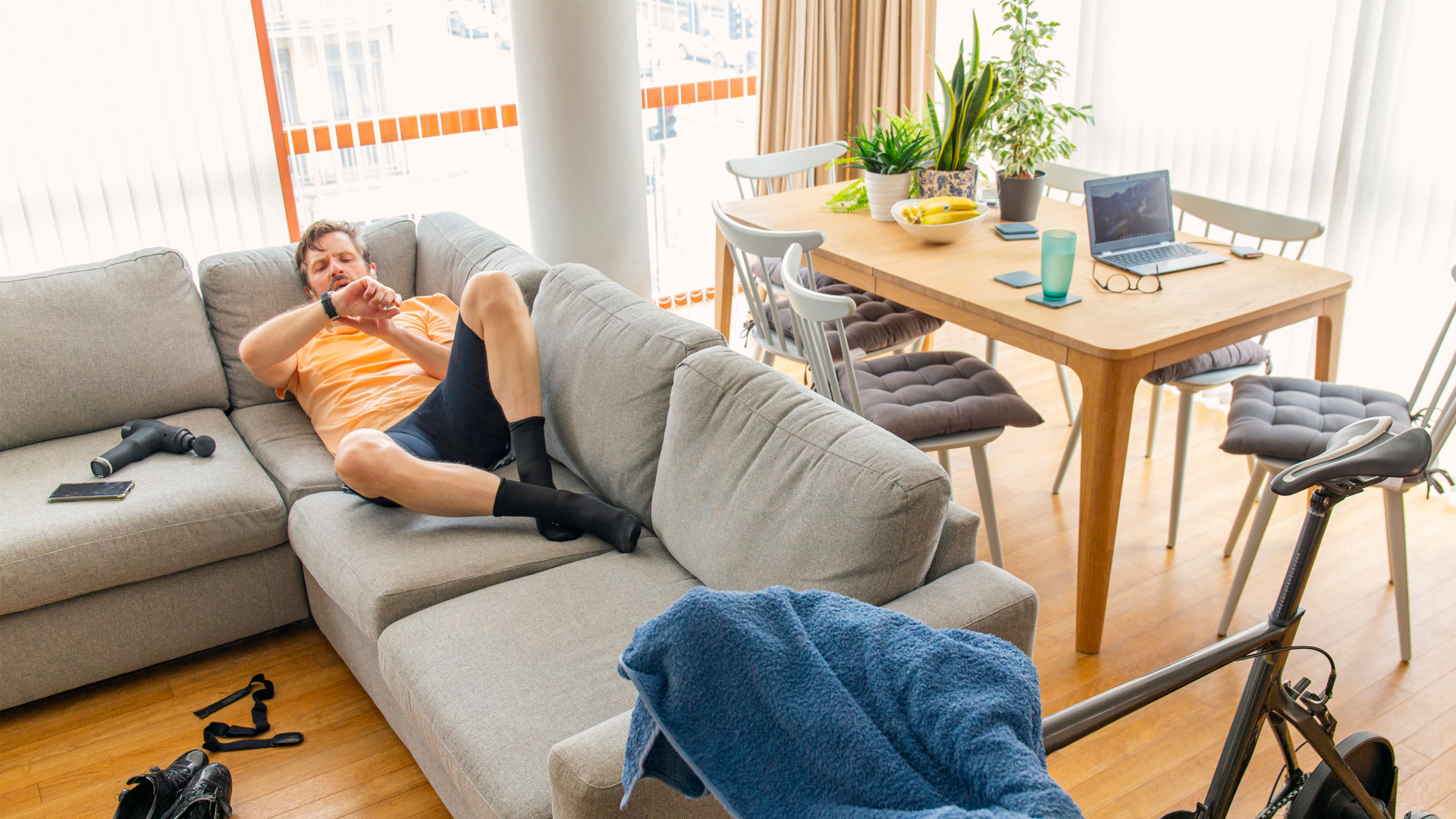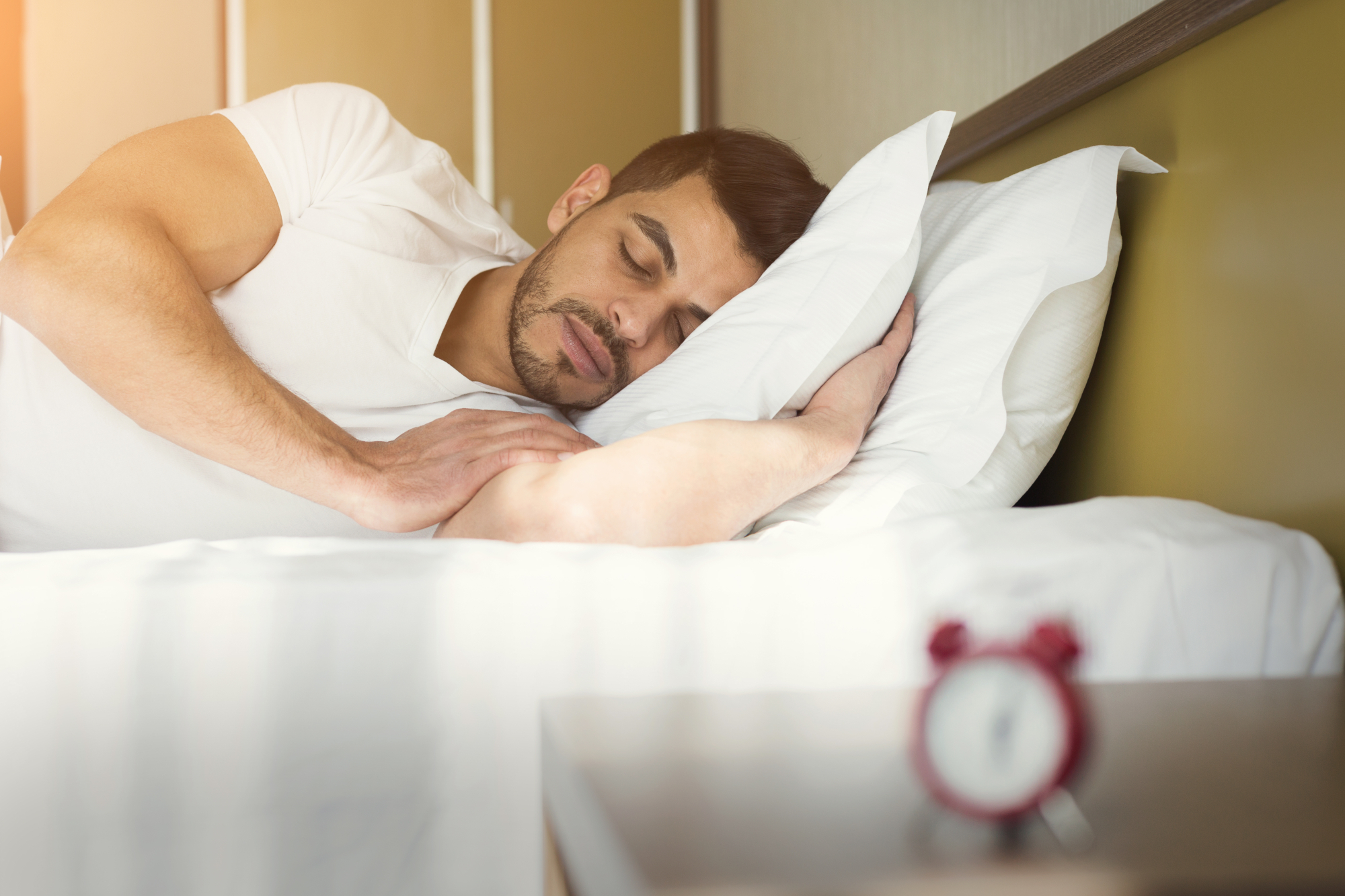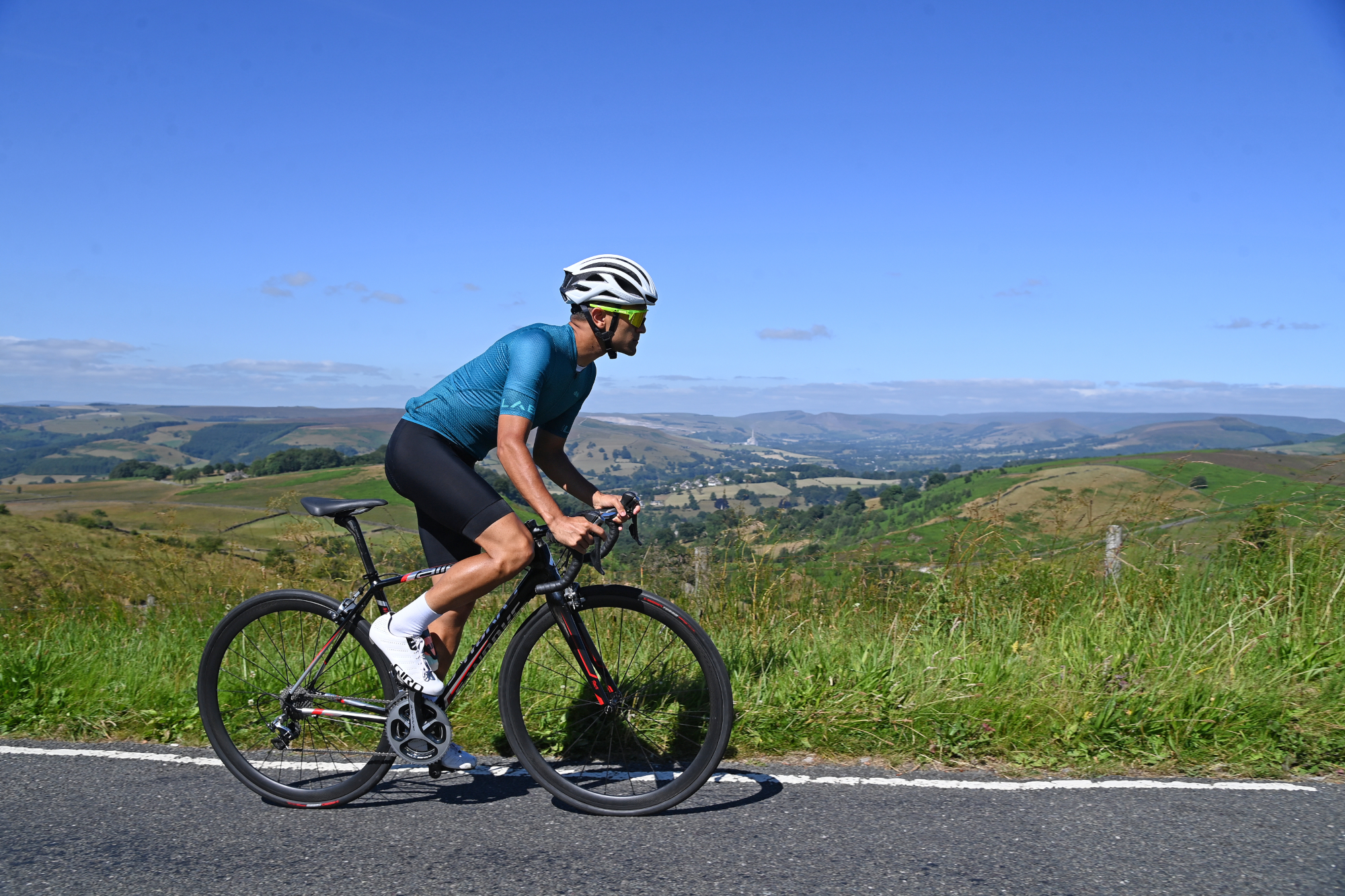Here’s what a lack of sleep does to your cycling performance - and how to improve the quality of yours
Having struggled with sleep as an aspiring pro, Jack Billyard is determined to put the question to bed

Improving your sleep could provide the single biggest boost to your cycling performance it’s possible to make by legal means. Though it was arguably made famous as a “marginal gain” when Team Sky (now Ineos Grenadiers) started carting their own mattresses with them at the Tour de France, sleep may in fact be a maximal gain – it really is that fundamental in building fitness and maintaining health. So how can you make sure you’re getting the optimum dose of the most potent legal performance enhancer known to cycling humanity?
First off, it’s important to acknowledge that no one chooses to sleep poorly. But we all know that cyclists chase after every available gain – often at great expense – and what is the point of spending hundreds of pounds on lightweight wheels or a more aero helmet if a crucial (and free) part of your daily life is holding you back? No matter how much you spend on components, you won’t compensate for a chronic lack of sleep. What’s more, given the squeeze on everyone’s finances recently, many of us are putting on hold the best bike upgrades – all the more reason to make sure our sleep is as good as it can possibly be.
My interest in this subject goes back several years. As an under-23 racer competing in professional UCI races in Europe from 2015 to 2018, I frequently struggled to sleep – not just before big races, but much of the time. Back then, I pretended to myself that repeatedly yawning my way through training sessions after restless nights wasn’t a big deal, but I’m now realising the extent to which it held me back. As I start to rebuild my fitness as an amateur cyclist – I’m no longer pursuing a career in cycling – I want to find out just how how much sleep matters. Was it the key weakness that derailed my progress?
Why is sleep important for cyclists?

My first call is to Nick Littlehales, a sleep coach who has worked with British Cycling to help elite riders understand what happens when we sleep and why it’s specifically important for cyclists. “The simple fact is, we should be allocating over 30 per cent of every 24 hours to a defined recovery process,” says Littlehales. “Everything gets repaired when we sleep, which means consistent sleep deprivation diminishes every pillar of human performance, not only muscular and respiratory recovery.”
It’s while we sleep that most testosterone and human growth hormone is released, more than in any other phase in each 24-hour cycle. Furthermore, the stress hormone cortisol decreases, cells and muscles are repaired, and our heart and cardiovascular system get the chance to rest. There is a lack of hard evidence around sleep and sports performance, but preliminary studies have suggested that sleep deprivation may also be linked with accelerated muscle atrophy when in a calorie deficit.
“You need to listen to your body,” Littlehales adds. “Cyclists want to be continually pushing their boundaries and sometimes hours of sleep are perceived as a waste of time. But you need a balance, and you need consistent and sustainable levels of recovery.”
From my own experience, getting more sleep rarely felt like giving myself a power-up, but when I was sleep deprived I could definitely tell that my performance dropped off. So, I want to know whether reducing the frequency of bad nights is all there is to it. “No, it’s more complicated than that,” Littlehales tells me. “Most cyclists have this perception that sleep is just a nocturnal thing – but that mindset does very little to actually aid recovery.”
The latest race content, interviews, features, reviews and expert buying guides, direct to your inbox!
How many hours should cyclists sleep?

Littlehales’s approach is to view sleep as an integral part of the recovery process, not just something we do at night. Recovery and sleep should not be viewed as separate concerns. Deliberate rest during the day should be regarded as part of a holistic package of recovery that includes sleep. That means that a hard-training cyclist who sleeps for only seven hours a night – generally regarded as the minimum for athletes – should supplement that shut-eye with a period of downtime during the day, ideally including a nap of between 20 and 30 minutes.
Structuring sleep like this, as part of the overall recovery process, means thinking more carefully about what you do during the day and how it affects your readiness to sleep at night. Top of the list are minimising caffeine and alcohol intake in the hours before bedtime, as these interfere with hormones and disrupt your feelings of tiredness.
How can cyclists optimise their sleep?
Littlehales advises taking advantage of our natural circadian rhythms. “Getting access to light first thing in the morning is vital. Enjoying just a short period of time in direct natural light when you first wake, preferably outside, stimulates the release of hormones like serotonin. If you work indoors, the vast majority of your day is in a low level of light in which the body produces melatonin, suppressing energy. By getting sunlight in the morning, you will start your day in the right way.”
Sleep coach Nick Littlehales recommends these simple breathing exercises as a short meditation, for example as a midday recovery option when you don’t have time to sleep.
This exercise helps to calm the sympathetic nervous system (the part that triggers the ‘fight or flight’ response)
- Find somewhere quiet to sit or lie down. Inhale through your nose for four seconds, then exhale slowly through your mouth for eight seconds.
- Concentrate on the sensations in your body such as the feeling of the air in your nose or your diaphragm expanding and contracting. Your attention will naturally float in and out, so if you notice your mind wandering, gently bring your concentration back to the breathing sensations.
- Just five minutes of this slow, controlled, mindful breathing can have the same effect as a short nap, as confirmed by a meta-analysis of 18 trials, which found evidence that mindfulness meditations improved sleep quality when compared to controls. This can also be an effective tool for minimising anxiety over getting enough sleep.
How does sleep affect performance on the bike?
So far it’s clear that sleep is the lynchpin of recovery, but how does getting the right amount affect our performance on the bike? The science points in one direction: multiple studies have shown significant gains after only a few weeks of improved sleep, with corresponding noteworthy losses in subjects who are sleep-deprived Littlehales confirms: “Some cyclists I’ve worked with have, by improving their sleep, been able to improve their performance by five to 15%.”
Double-figure gains in performance are huge, and significantly more than you would acquire through buying an aero helmet or even a top-of-the-range bike costing many thousands of pounds. “Younger athletes tend to embrace this stuff because they really want to enter this elite world of sport and they want that extra nudge, even if it’s only 1-2%,” Littlehales continues.
In considering how much sleep we need, the core guideline is seven to nine hours per night. For Littlehales, however, this is too simplistic. He would rather athletes think of those seven to nine hours holistically as part of their overall recovery. It might be better to set aside an hour for recovery during the day – for example, to include a 30-minute nap and three 10-minute relaxing breathing sessions – leaving you less likely to need a full nine hours’ sleep at night. “Trying to optimise your recovery by pushing the entire burden onto the nocturnal state is too much of a challenge,” explains Littlehales.
Why it's important not to chase sleep perfection
The case for plentiful sleep is very compelling – it makes us stronger and more consistent athletes and can provide far bigger gains than spending endless money on tech. However, there is a risk of getting too hung up on getting a set number of hours. Leading sleep physiologist Stephanie Romiszewski from the Sleepyhead Clinic in Exeter cautions against fixating on sleep. “Knowledge about sleep has to be communicated very carefully,” she says. “There’s no such thing as sleep perfection. Anxiety over whether you’re getting enough sleep can contribute to both negative sleep quality and quantity.”
Romiszewski explains that for most people obeying feelings of tiredness is the best guide to getting the right amount of sleep. “The harder you’re training, the more likely you are to need more sleep,” she continues, “but you still need to self-measure how tired you are after exercise because some people are just genetically long or short sleepers.” This means you need to distinguish between physical tiredness from training and a genuine need for sleep, what Romiszewski calls feeling “sleepy-tired”. “If you find yourself having to catch up on sleep with lie-ins or naps, you’re probably not sleeping for long enough at night.”
If you suspect you would benefit from getting more sleep, try out different strategies and see if they work for you. Without putting much pressure on yourself, run some personal experiments, note the results, then keep the ideas that work and discard those that don’t. Only by doing small incremental changes over time is it possible to ease into new sleeping habits and patterns.
What are the recommended ways to improve sleep? ‘Sleep hygiene’ has become a buzz-phrase in recent years, though the science suggests that education around this concept has minimal impact. This may be because avoiding blue light, alcohol and meals before bed is just too impractical for many of us. What does Romiszewski think are the most impactful ways to influence sleep?
“Don’t underestimate the power of light. Our circadian rhythm is really attuned to the light-dark cycle, and it makes a huge influence sleeping in a room that is truly dark.” The sleep specialist’s simple rule of thumb is to “get more light in the morning when you need to wake up, less in the evening, and zero light during the night.” During the winter, a light alarm – which lights up gradually to wake you – can be an effective way of achieving this.
Romiszewski has saved her best piece of advice for last. “The most influential behaviour change you can make,” she adds, “is to wake up and go to bed at the same time every single day. This will make a difference in less than 10 days and will regulate your mood, appetite and body temperature – all of which are significant for improving recovery from training.”
Natural sleeping aids
Certain floral and herbal solutions for sleep have been popular for hundreds of years – and for good reason. Though there is little evidence of a strong physiological effect, drinking a familiar, caffeine-free concoction such as camomile tea before bed can contribute to a good bedtime routine by letting your body know it’s time to start winding down. Sleep mists, applied in a spray to your pillows and usually containing lavender or tea tree oil, serve a similar function.
While certain supplements could increase your performance, sleep supplements containing melatonin are best avoided, according to Romiszewski. “Melatonin supplementation has unpredictable effects from person to person, and it’s liable to disrupt your body’s natural sleep cycles,” she warns. More seriously, melatonin has a dependency risk attached, and Romiszewski is emphatic that the potential negative impacts far outweigh any small and limited positives.
As we have seen, athletes perform to their best when they’re getting the right amount of sleep for their personal needs night after night over weeks and months. Most of us have scope to improve our sleep, either through simple self-discipline or adopting new habits. While obsession and anxiety over getting enough sleep should be avoided, the more serious you are about your training and racing, the greater your need for getting at least seven hours every single night – ideally supplemented with naps and deliberate recovery breaks during the day.
Does this mean we should regard sleep as the base of the training pyramid? “Exactly that!” enthuses Littlehales. “When you’re under-recovered, everything becomes an uphill battle – negatives start to have a disproportionate effect on you and positives become harder to take advantage of.”
For me, since starting work on this feature, the most significant change to my sleep routine has come from getting natural light first thing in the morning by eating breakfast on my balcony. Within days, I noticed my sleep was extended by 30 to 45 minutes per night, confirmed by my smartwatch. This tiny behaviour change is already making my evening sprints around Regent’s Park feel like less of a chore.
I’ll never know for sure whether improving my sleep could have altered my fortunes in cycling, but in terms of return on investment, adopting the ideas outlined above is likely to be far more effective than splurging cash on carbon wheels or fancy kit. When coaches talk about recovery and races being “won on the couch”, maybe it’s even more accurate to say they’re won in bed!
This article was originally published in the print edition of Cycling Weekly. Subscribe online and get the magazine delivered direct to your door every week.